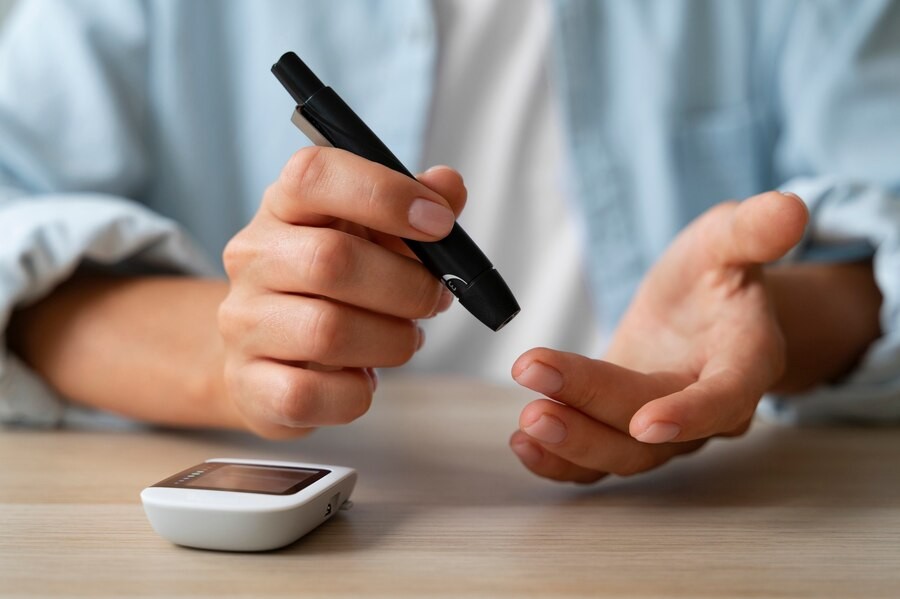Diabetes is a chronic disease requiring ongoing treatment. While medication cannot cure diabetes entirely, it is essential for maintaining normal blood sugar levels and preventing potential complications.
Some people with diabetes might consider stopping their medication for various reasons, such as feeling better, fearing side effects, or wanting to try alternative treatments. However, discontinuing medication without consulting a doctor can have serious health consequences.
The impact of stopping diabetes medication
Increased blood sugar levels
One immediate effect of stopping diabetes medication is an increase in blood sugar levels. Diabetes medications help regulate blood sugar levels in the body. Without medication, the body struggles to control blood sugar, leading to spikes (hyperglycemia). Persistently high blood sugar levels can lead to serious health problems such as kidney and heart disease.
Serious health complications
If blood sugar levels remain high and uncontrolled, the patient's condition may worsen over time. Possible complications include:
- Heart and vascular disease
- Nerve damage (diabetic neuropathy)
- Kidney damage
- Eye damage
- Diabetic foot
- Skin problems
- Oral and dental issues
- Hearing problems
- Mental health issues
- Pregnancy complications
Diabetic ketoacidosis
Diabetic ketoacidosis is an acute complication that can occur in people with type 1 and type 2 diabetes if they stop their medication. This condition happens when the body starts breaking down fat for energy due to a lack of insulin. This process produces ketones as a byproduct, which can lead to increased blood acidity and potentially fatal outcomes if not treated immediately.
Decreased quality of life
Stopping diabetes medication can also affect the overall quality of life. You might experience frequent fatigue, excessive thirst and hunger, and frequent urination. These symptoms can interfere with your daily activities and lower your overall quality of life.
Difficulty rebalancing blood sugar levels
If you stop taking diabetes medication suddenly and without medical supervision, it can be challenging to restore normal blood sugar levels. Your body may need time to readjust to the medication. Your doctor might also need to adjust or increase your dosage to control your blood sugar effectively.
Given the importance of diabetes medication, it is critical not to discontinue it abruptly. If you are interested in trying alternative treatments, talk to your doctor about whether they can be used alongside your current medication. Diabetes management is a long-term commitment that requires discipline to maintain stable blood sugar levels and improve quality of life.
Have other questions related to diabetes treatment? You can make use of the consultation features that are available in the Ai Care application by downloading the Ai Care application from the App Store or Play Store.
Looking for more information about other diseases? Click here!
- dr Nadia Opmalina
American Heart Association (2024). Diabetes Medications. Available from: https://www.heart.org/en/health-topics/diabetes/prevention--treatment-of-diabetes/diabetes-medications
Mayo Clinic (2024). Diabetes treatment: Medications for type 2 diabetes. Available from: https://www.mayoclinic.org/diseases-conditions/type-2-diabetes/in-depth/diabetes-treatment/art-20051004
Drugs.com (2024). What happens if you stop taking diabetes medication?. Available from: https://www.drugs.com/medical-answers/you-stop-taking-diabetes-medication-3565614/
National Library of Medicine (2023). Type 2 diabetes: Learn More – What medications help in type 2 diabetes?. Available from: https://www.ncbi.nlm.nih.gov/books/NBK279506/
Loren D. Grossman, MD, FRCPC, FACP (2024). Complementary and Alternative Medicine for Diabetes. Available from: https://www.diabetes.ca/health-care-providers/clinical-practice-guidelines/chapter-22#panel-tab_FullText
Cleveland Clinic (2023). Hyperglycemia (High Blood Sugar). Available from: https://my.clevelandclinic.org/health/diseases/9815-hyperglycemia-high-blood-sugar
Diabetes UK. Complications of Diabetes. Available from: https://www.diabetes.org.uk/guide-to-diabetes/complications
Mayo Clinic (2023). Hypoglycemia. Available from: https://www.mayoclinic.org/diseases-conditions/hypoglycemia/symptoms-causes/syc-20373685
Medline Plus (2023). Diabetic ketoacidosis. Available from: https://medlineplus.gov/ency/article/000320.htm












